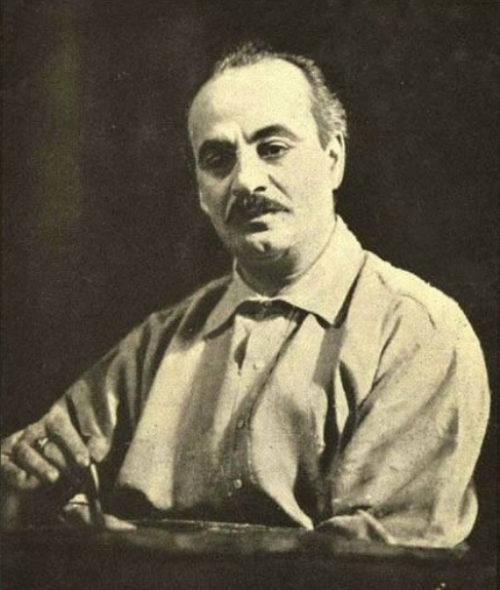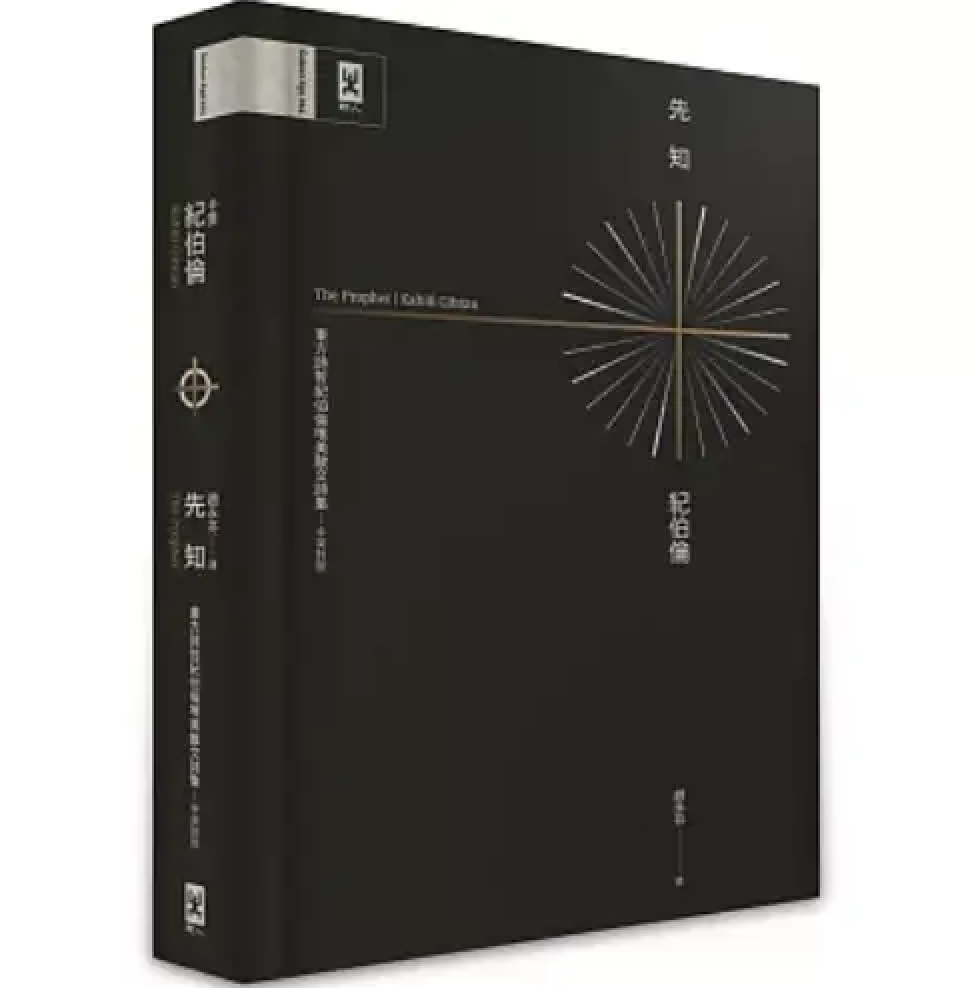「你的孩子不是你的孩子」閱讀百年詩篇<孩子>與<教導>由最偉大的詩人之一「紀伯倫」談親子關係
台灣影集《你的孩子不是你的孩子》劇情讓人反思教育與控制,然而紀伯倫的詩早在一世紀前便寫下答案「真正的愛,是放手讓生命成為它自己。」
詩人與經典:《先知》的誕生與影響

《先知》(The Prophet)是黎巴嫩裔詩人紀伯倫(Kahlil Gibran)於1923年出版的經典詩集,全書以哲理散文詩構成,涵蓋愛、婚姻、孩子、教導、自由、死亡等主題。這本書問世後雖默默無聞,但隨著時代轉動,它逐漸成為二十世紀最具影響力的靈性著作之一,被譯成逾百種語言,銷售超過千萬冊。
紀伯倫融合了東方神祕主義與西方浪漫精神,他筆下的智慧不屬於任何宗教,卻能觸動所有人類的內在信仰。《先知》以虛構的智者穆斯塔法之口,對眾人傾訴關於人性、愛與生命的啟示。詩中語氣溫柔而堅定,既有宗教般的沉靜,又有現代思想的自由。
〈孩子〉中英對照
And a woman who held a babe against her bosom said, Speak to us of Children.
And he said:
Your children are not your children.
They are the sons and daughters of Life’s longing for itself.
They come through you but not from you,
And though they are with you yet they belong not to you.
You may give them your love but not your thoughts,
For they have their own thoughts.
You may house their bodies but not their souls,
For their souls dwell in the house of tomorrow, which you cannot visit, not even in your dreams.
You may strive to be like them, but seek not to make them like you.
For life goes not backward nor tarries with yesterday.
You are the bows from which your children as living arrows are sent forth.
The archer sees the mark upon the path of the infinite, and He bends you with His might that His arrows may go swift and far.
Let your bending in the archer’s hand be for gladness;
For even as He loves the arrow that flies, so He loves also the bow that is stable.
一個懷裡抱著嬰兒的婦人說,跟我們說說「孩子」吧。
於是他說:
你的孩子不是你的,
他們是「生命」的子女,是生命自身的渴望。
他們經你而生,但非出自於你,
他們雖然和你在一起,卻不屬於你。
你可以給他們愛,但別把你的思想也給他們,
因為他們有自己的思想。
你的房子可以供他們安身,但無法讓他們的靈魂安住,
因為他們的靈魂住在明日之屋,
那裡你去不了,哪怕是在夢中。
你可以勉強自己變得像他們,但不要想讓他們變得像你。
因為生命不會倒退,也不會駐足於昨日。
你好比一把弓,
孩子是從你身上射出的生命之箭。
弓箭手看見無窮路徑上的箭靶,
於是祂大力拉彎你這把弓,希望祂的箭能射得又快又遠。
欣然屈服在神的手中吧,
因為祂既愛那疾飛的箭,
也愛那穩定的弓。
〈孩子〉詩篇解析:自由靈魂的誕生
這首詩以震撼的開場寫道:「你的孩子不是你的孩子。」這句話道出親子關係最深層的真理,孩子並非父母的附屬,而是「生命自身對未來的渴望」。
詩中以弓與箭的隱喻形容父母與孩子的關係,父母是拉弓之人,孩子是飛向遠方的箭。而愛,不是緊握,而是幫助他們飛得更遠。
這首詩之所以歷久彌新,在於它溫柔地提醒父母,孩子不是要被塑造的作品,而是要被理解的生命,真正的教育,是在信任與放手中發生的,父母若能學會尊重孩子的節奏與方向,親子之間的愛,才能超越控制,成為共生的光。
〈教導〉中英對照
Then said a teacher, "Speak to us of Teaching."
And he said:
No man can reveal to you aught but that which already lies half asleep in the dawning of our knowledge.
The teacher who walks in the shadow of the temple, among his followers, gives not of his wisdom but rather of his faith and his lovingness.
If he is indeed wise he does not bid you enter the house of wisdom, but rather leads you to the threshold of your own mind.
The astronomer may speak to you of his understanding of space, but he cannot give you his understanding.
The musician may sing to you of the rhythm which is in all space, but he cannot give you the ear which arrests the rhythm nor the voice that echoes it.
And he who is versed in the science of numbers can tell of the regions of weight and measure, but he cannot conduct you thither.
For the vision of one man lends not its wings to another man.
And even as each one of you stands alone in God's knowledge, so must each one of you be alone in his knowledge of God and in his understanding of the earth.
然後,一位教師說,跟我們說說「教育」吧。
他回答:
任何人能夠給你的啟發,
其實都已經在你知識的曙光中半睡半醒。
老師漫步在神殿的暗影中,
走在門徒之間,
他們奉獻的不是智慧,而是信念與愛心。
若他確實睿智,就不會吩咐你進入他的智慧之屋,
而是引導你跨越自己心靈的門檻。
天文學家或許可以與你暢談他對太空的了解,
卻無法把他的理解給你;
音樂家或許可以對你唱出盈滿天地之間的韻律,
卻無法給你掌握節奏的耳朵,
或是應和韻律的歌喉;
精通數字科學的人或許可以告訴你計算和度量的方法,
卻無法帶領你到達彼方。
因為一個人不能把想像力的翅膀借給別人,
就像在神的心中,你們是各自獨立的,
因此,你們也必須獨自認識神和地球。
〈教導〉詩篇解析:引導而非灌輸

這首詩延續了紀伯倫對「自由學習」的信仰。他寫道:「老師若真智慧,不會讓你進入他智慧的屋中,而是帶你到你自己心智的門前。」這句話揭示教育的核心是啟發,而非灌輸。
詩中指出,無論是父母或老師,都不能替孩子經歷理解;知識可以被傳授,但智慧必須由自己體會。
這首詩受人喜愛的原因,是它將「教」變成一種謙卑的藝術,讓父母學會退一步,成為引導者而非指令者。對現代家庭而言,這是最珍貴的提醒,教育的終點不是讓孩子複製我們,而是讓他成為他自己。
加入媽媽寶寶LINE@好友 孕產育兒新知不漏接👇
